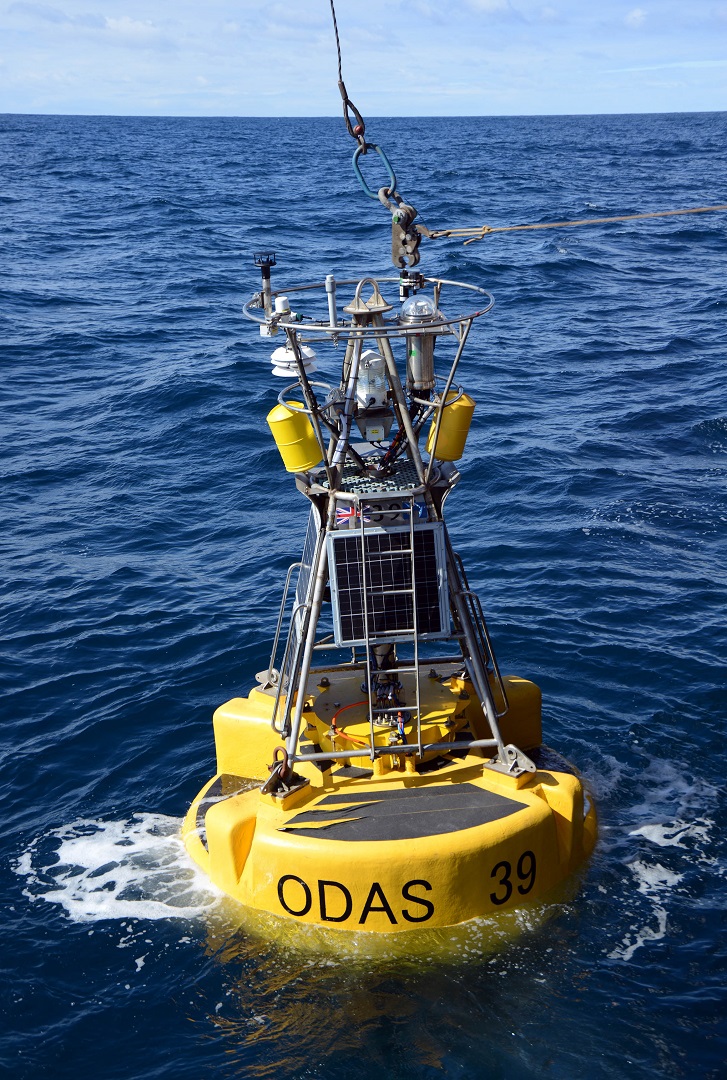Our vast One Ocean is very sparsely sampled in space and time, yet many fundamental questions of both scientific and practical importance depend on understanding change and variability, at time-scales from days to decades and from local to regional to global scales.
This is where NOC creates impact. We have world-leading programmes of long-term, global-scale Ocean observations.
We combine measurements from a range of platforms and techniques to build a complete picture of the complex nature of our ocean. We observe the surface Ocean from satellites, which give very good spatial coverage with a few days between satellite passes. Instruments moored to the sea-floor, or at coastal sites, give us very detailed information about changes over time at a few, carefully-chosen locations in the Ocean. Research vessels, and surface and underwater robots (gliders and other autonomous vehicles) are used to carry out detailed surveys. Drifting buoys (that drift close to the sea surface) and floats (that float around at around 2,000m depth), along with opportunistic use of commercial ships, help us measure the rest of the Ocean.
Recent news
- UK’s new fleet of advanced robotic floats deployed as part of global Argo programme
- NOC lead NERC Ocean Observations Consultation
- New fleet of advanced robotic floats to understand ocean health

Ways we enable ocean observations
Our observations contribute to the Global Ocean Observing System and the measurement of the Essential Ocean Variables needed for understanding, predicting and managing climate change, operational services, and marine ecosystem health.
We lead the UK’s dedicated research programme in the Atlantic Ocean called the Climate Linked Atlantic Sector Science (CLASS), that brings together many of the UK’s sustained ocean observation systems and platforms in a coherent and sustained programme: a blueprint for other nations to follow.
Our Porcupine Abyssal Plain Sustained Observatory (PAP-SO) is a sustained, multidisciplinary observatory in the North Atlantic, managed on behalf of the marine research community. For over 20 years the observatory has provided key time series datasets for analysing the effect of climate change on the open Ocean and deep-sea ecosystems.
Additional sustained Ocean observations are carried out under a Southern Ocean Research Programme ORCHESTRA and the Antarctic Circumpolar Current Drake Passage Section.
Coastal sea level is monitored around the UK and the world by the UK Tide Gauge Network and the Global Sea Level Observing System.
The large-scale Ocean circulation (the meridional overturning circulation) is observed by a flagship programme; the RAPID array.
As part of our ongoing commitment to a Net Zero Oceanographic Capability we lead the development of autonomous vehicles that are increasing our ability to measure the Ocean at the space and time scales that we require. This extends from over 25 years of pioneering development of multiple new technologies, platforms and facilities to support discovery research.